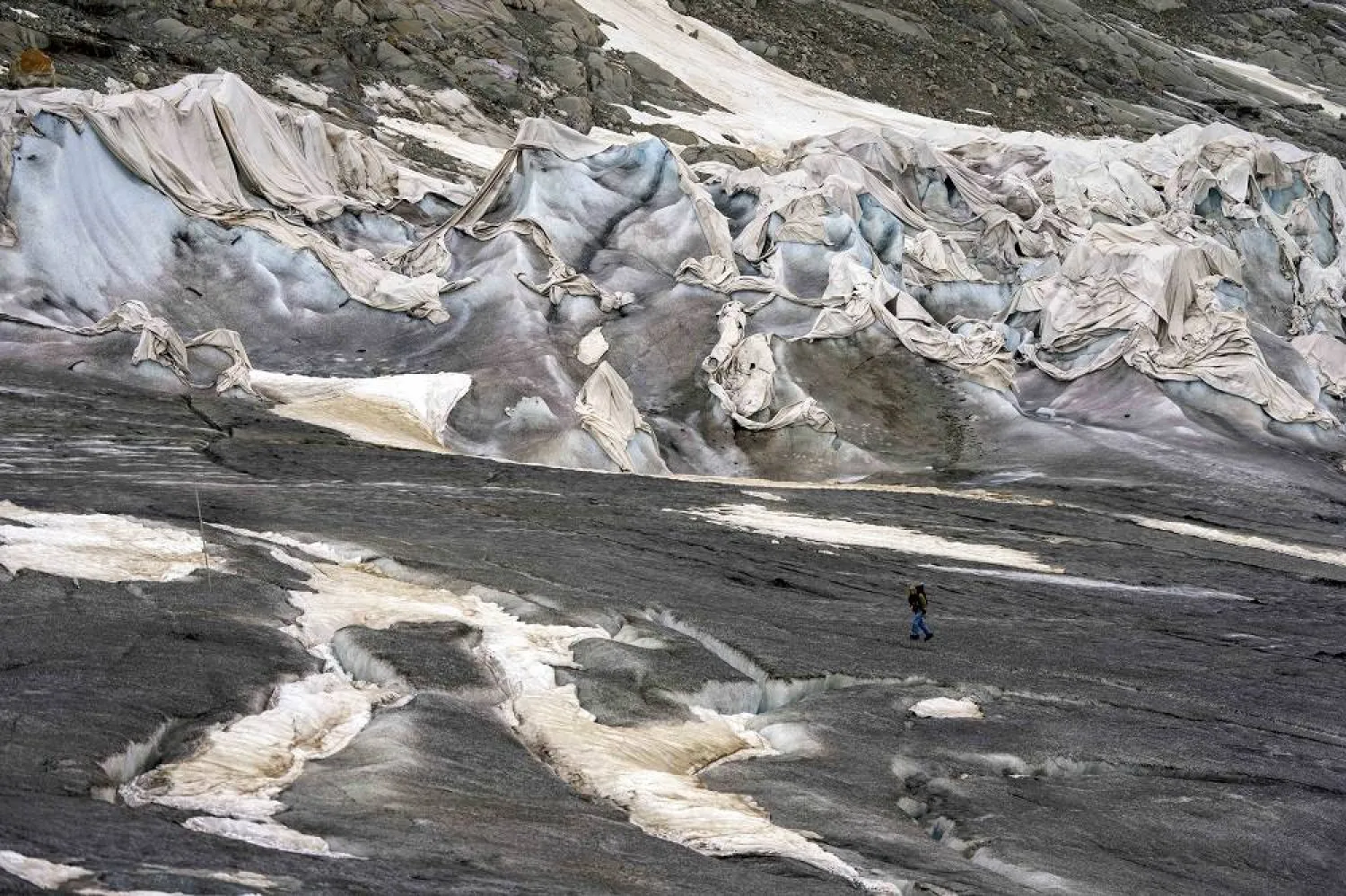The Swiss weather service said Monday a heatwave has driven the zero-degree Celsius level to its highest altitude since recordings on it in Switzerland began nearly 70 years ago, an ominous new sign for the country's vaunted glaciers.
MeteoSwiss says the zero-degree isotherm level reached 5,298 meters (17,381 feet) above sea level over Switzerland overnight Sunday to Monday. All of Switzerland's snow-capped Alpine peaks — the highest being the 4,634-meter (15,203-foot) Monte Rosa summit — had air temperatures over zero Celsius (32 F) where water freezes to ice, raising prospects of a thaw.
Even Mont Blanc, Europe's highest mountain along the Italian-French border at some 4,809 meters (15,800 feet), is affected, the weather agency said based on readings from its weather balloons.
The new high altitude eclipsed a previous record set in July 2022, a year that experts say was particularly devastating for the glaciers of Switzerland. Readings have been taken on the zero-degree altitude level since 1954.
“An exceptionally powerful anticyclone and warm air of subtropical origin are currently ensuring scorching weather over the country,” MeteoSwiss said on its website, adding that many measuring stations in Switzerland have set new temperature records in the second half of August.
MeteoSwiss meteorologist Mikhaël Schwander said it marked only the third time such readings had been tallied above 5,000 meters — and that the level was generally around 3,500 to 4,000 meters in a typical summer.
“With a zero-degree isotherm far above 5,000m (meters above sea level), all glaciers in the Alps are exposed to melt — up to their highest altitudes," said Daniel Farinotti, a glaciologist at the federal technical university in Zurich, ETHZ, in an email. “Such events are rare and detrimental to the glaciers’ health, as they live from snow being accumulated at high altitudes.”
"If such conditions persist in the longer term, glaciers are set to be lost irreversibly,” he said.
A Swiss study last year found that the country's 1,400-odd glaciers — the most in Europe — had lost more than half their total volume since the early 1930s, including a 12-percent decline over the previous six years alone.









